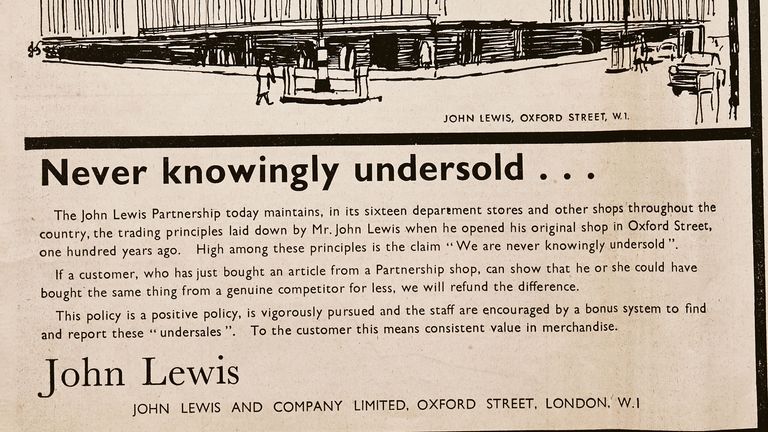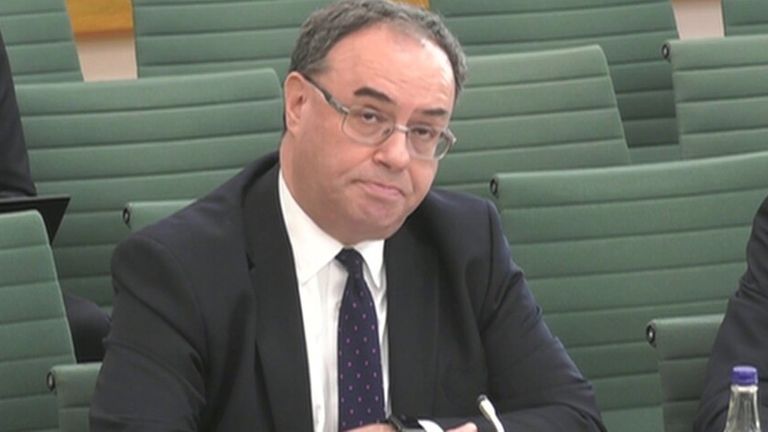John Lewis scraps ‘Never Knowingly Undersold’ price pledge
John Lewis is to ditch its long-held “Never Knowingly Undersold” price pledge with the rise of online retailers such as Amazon and changing shopping habits.
The department store giant said the commitment, first introduced in 1925, hailed from a different era and would be “retired” this summer.
The promise means the employee-owned business matches prices on like-for-like branded products if a customer pointed out they could find it cheaper elsewhere.
However, it did not apply to online-only rivals.
John Lewis said that it would still monitor prices at its competitors, but it will invest £500m in keeping prices down without customers having to shop around.
This is 25% more than it spent in 2021, said the retailer as it expected shoppers to become more cost conscious.
John Lewis executive director Pippa Wicks said: “Customers are tightening their belts and we’re responding so John Lewis is more affordable for every customer, every day whether shopping in-store or online.
“Never Knowingly Undersold has been a cherished sign of trust for John Lewis for a century but it doesn’t fit with how customers shop today as more purchases are made online.
“Our new £500m investment means all our customers can trust they’re getting the quality, style and service they expect from John Lewis at great value prices.”
MoneySavingExpert founder Martin Lewis argued the pledge was little used anyway.
He said: “The Never Knowingly Undersold promise has always been a bit of a psychological sop to consumers, giving an arguably false impression that John Lewis is cheap.
“In reality, it allows the store to charge what it likes and know that, for a few price-sensitive shoppers – less than 1% last year – who are bothered to check prices elsewhere after making a purchase, John Lewis will reduce its price but only to that of its high street competitors.”
UK consumer confidence suffered its biggest month-on-month drop in February since the start of the coronavirus pandemic, reflecting worries about fast-rising inflation, higher taxes and interest rates going up, a survey showed on Friday.
British inflation hit its highest in nearly 30 years in January at 5.5%, and the Bank of England expects it to peak at around 7.25% in April when a 54% hike in the regulated energy price cap takes effect.



